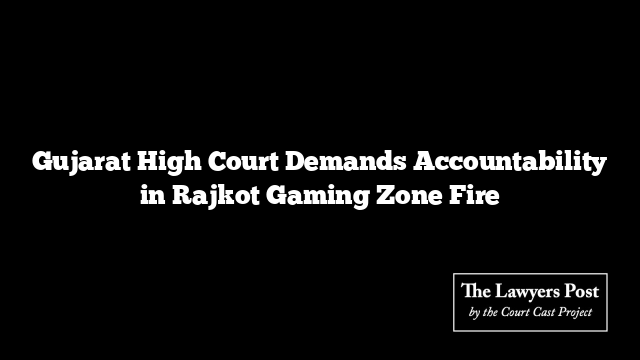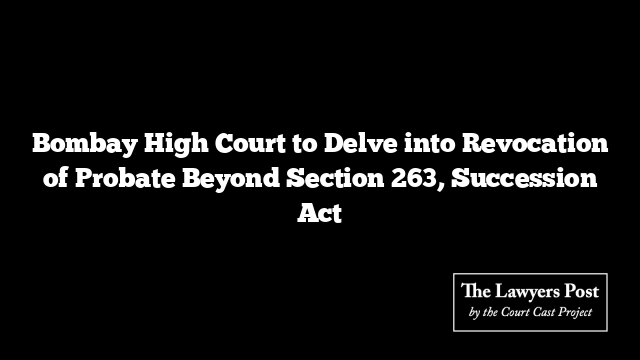The Gujarat High Court has ordered the state government to establish a fact-finding committee to investigate the fire that broke out at a gaming zone in Rajkot on May 24. This tragic incident has cast a harsh spotlight on the alleged inaction and negligence of senior officers in the Rajkot Municipal Corporation.
A bench comprising Chief Justice Sunita Agarwal and Justice Pranav Trivedi underscored the necessity of a thorough investigation, ensuring that no responsible party evades accountability.
“Every aspect of dereliction or inaction by Rajkot Municipal Corporation officials must be thoroughly examined,” the court mandated.
The court’s scrutiny extends beyond this incident. It has called for a comprehensive review of all municipal corporations across Gujarat, prompted by a spate of recent tragedies including the Morbi bridge collapse and the Harni Lake boat disaster.
“These recurring incidents indicate a systemic failure in ensuring the safety of public spaces managed by municipal corporations,” stated the court in its June 13 order.
In an unprecedented move, the court has also directed a physical inspection of all schools, both state-run and private, serving children aged 3 to 14, to verify fire safety measures and other building compliances. Reports on these inspections are to be submitted within a month.
The order follows the court’s suo motu cognisance of the Rajkot fire, which claimed 27 lives. News reports suggested that the gaming zone had exploited loopholes in the Gujarat Comprehensive General Development Control Regulations (CGDCR), leading to illegal structural developments intended for recreational purposes.
Further complicating the issue, the court noted reports of temporary tin structures being erected to bypass regulatory technicalities. This problem is not unique to Rajkot; similar gaming zones have emerged in Ahmedabad, posing significant risks to public safety.
After reviewing an affidavit from the Rajkot Municipal Corporation, the court found that the gaming zone had operated without the necessary building use permission. Instead, it had relied solely on police permissions under Section 33(x) of the Gujarat Police Act, 1951, which governs the sale of tickets or passes for public amusement.
Despite an application to regularize the structure under the Gujarat Regularization of Unauthorised Development Act (GRUDA), no action was taken, leading the court to conclude that municipal officials had neglected their duties.
“The Municipal Commissioners of Rajkot Municipal Corporation, in charge during the erection and operation of the TRP gaming zone, failed in their responsibilities to prevent the use of unauthorized structures without proper permissions,” the court asserted.
Highlighting the absence of a state-led fact-finding inquiry to identify responsible officers, the court has now directed the Principal Secretary of the Urban Development and Urban Housing Department to form a high-level committee. This committee, comprising three senior officers, is tasked with identifying lapses and negligent officers, including those in charge from the inception of the gaming zone until the fire incident.
The court has scheduled the next hearing for July 4, demanding a report on the inquiry.
Advocate DM Devnani assisted the court as amicus curiae, while Advocate General Kamal Trivedi, Additional Advocate General Manisha Lavkumar, and Additional Government Pleader Vinay Bairaga represented the state government.





